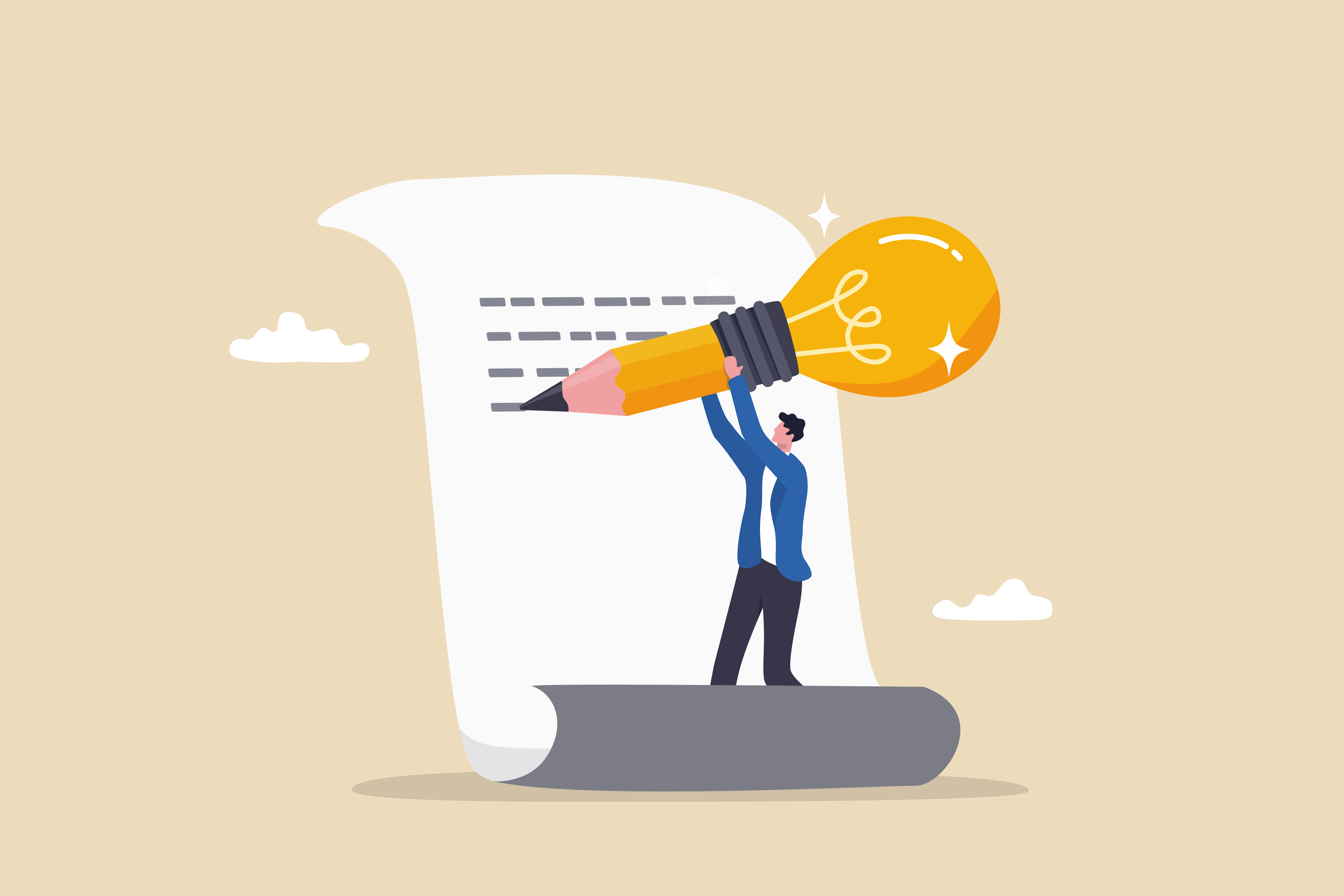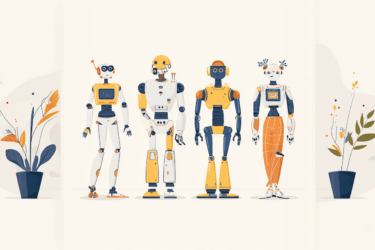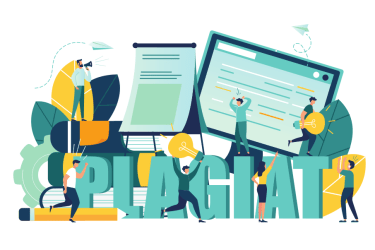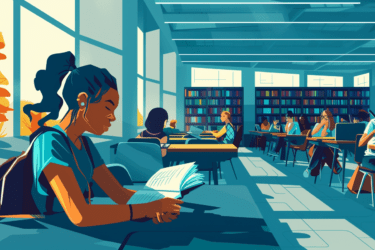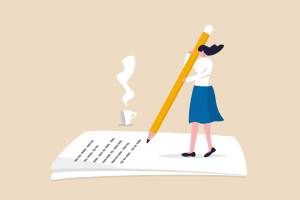“It is bad just because it is bad” has never been a good persuasion strategy. So, advocating for the importance of original writing and using a plagiarism checker to fight copying is not just some stigmatized rule of the academic environment. It is a need based on the numerous consequences that come with plagiarism.
Consequences of Plagiarism in Academia
Originality is a crucial requirement for any writing in academia. Plagiarism is one of the most serious rule violations that can lead to expulsion from the institution and has long-term effects.
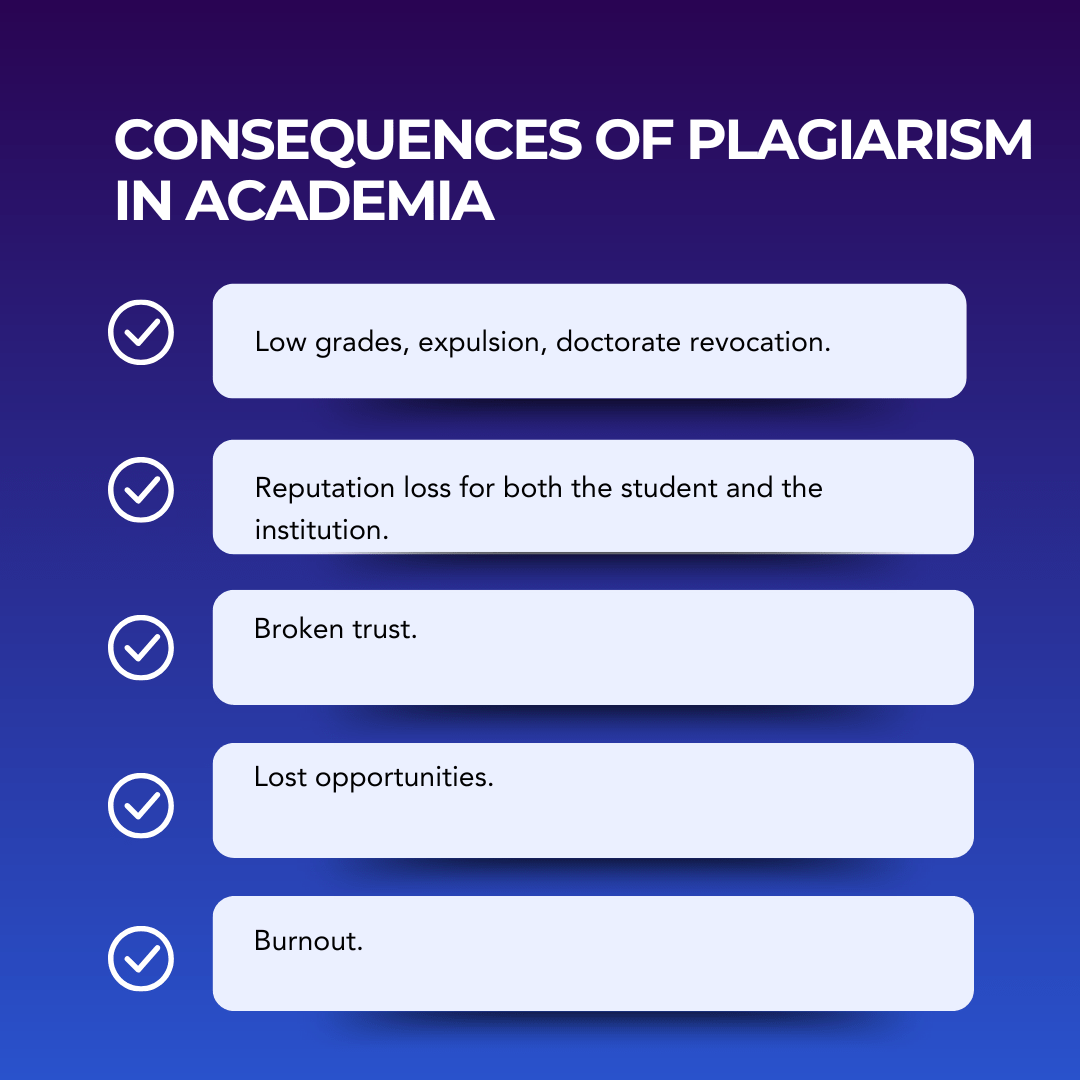
- Low grades, expulsion, doctorate revocation. Poor marks and declined assignment is the very least that can happen when the work is plagiarized. Depending on the importance of the paper, plagiarism can entail suspension or expulsion from the university. History also knows the cases when uncovered plagiarism led to doctorate revocation even years after graduation. Plagiarism is a violation that has no expiration date.
- Reputation loss for both the student and the institution. Plagiarising once, the student puts at risk their whole performance. Moreover, it affects the educational institution, ruining academic integrity. Plagiarism scandals are never suitable for any academy, so universities and research institutions are strict and meticulous regarding originality for a reason.
- Broken trust. Interactions between colleagues, as well as professors and students, are built on commitment. Revealed plagiarism breaks this trust, and regaining it may be more complicated than correcting the grades. Furthermore, teachers speak to each other, and a plagiariser may face suspicion even presenting original work to other professors within the institution.
- Lost opportunities. Writing tasks are an excellent occasion to polish research and creative skills. Composing an essay makes one revise and reflect on the material, find an original voice, learn to be authentic, and question the known concepts. It is how we form our beliefs and learn to defend our truth – an experience one definitely needs in life. Plagiarising leads only to blind copying without any growth or personal touch – sounds like a questionable life and career path, doesn’t it?
Read more about the most unexpected consequences of plagiarism in the academic environment.
Consequences of Plagiarism in Business
Education shapes our moral code and work ethics. That is why cheating is strictly prohibited in academia – without a firm understanding of plagiarism outcomes, authorship violation may cost even more in career and business.
- Legal consequences. Plagiarized ideas and concepts violate the law, so the actual author has the right to sue the plagiarist. Usually, copying is considered a civil matter, but in some instances, it can entail criminal fraud charges or even a prison sentence.
- Ruined reputation. Rough but true – plagiarism is an intellectual theft and a fraud. By building a business on copied ideas, one deceives colleagues, partners, and customers. And it is not something people tend to forgive or forget easily.
- Money loss. Legal consequences entail money problems. But even without fines and charges, a business built on stolen ideas can’t be sustainable. It may bring fast income initially, but plagiarism issues will arise sooner or later, and the ruined reputation costs much more than any financial outlay.
Consequences of Plagiarism in Creative Field
Plagiarism is unacceptable in any domain, but the topic gets especially sensitive when it comes to the creative area. When originality comes to the fore, authorship violation gains even more significance.
- Legal problems. Authorship is a serious matter, especially in a creative environment. In writing, journalism, and art of any kind, intellectual property becomes the very essence of a job, the source of income, and the subject of protection. Or a lawsuit – when this property is stolen.
- Jeopardized reputation and relationship. In the creative field, originality is one of the things that defines a person as a professional. Stealing someone’s ideas seems a betrayal not only regarding the colleagues but also the very concept of art and creativity. It is definitely not the experience helping to build trust and make a name for oneself.
- Burnout. Creativity is all about self-expression. Copying someone systematically, trying to follow and catch up instead of getting inspired and shaping something, is an unlikely path to well-being. Add here constant worries about being uncovered and imposter syndrome, and burnout seems to be the most probable outcome of the situation that otherwise could bring joy, self-contentment, and recognition.
Staying creative, using multiple sources for research, and checking your paper with originality and AI text detector are the essential steps that help you avoid plagiarism. Try PlagiarismCheck.org for free to gain confidence in your writing!
